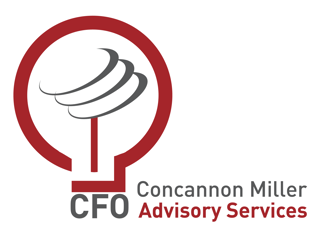 Small business owners wear lots of hats – in addition to your CEO duties, you may also handle your company’s operations, marketing and hiring. You might even shovel the sidewalks in the winter.
Small business owners wear lots of hats – in addition to your CEO duties, you may also handle your company’s operations, marketing and hiring. You might even shovel the sidewalks in the winter.
A critical job responsibility that should always be on your mind is that which a CFO handles. Your company may not be big enough to warrant having a CFO, but that doesn’t mean you shouldn’t think like one.
The CFO’s responsibilities are among the most crucial to the strategic success of your company. Will you make your budget? How will you find new revenue opportunities to expand your company? What are your most profitable products or services? How do you manage cash flow cycles? How do you time strategic purchases?
Below are nine ways a small business owner can think like a CFO to improve the financial performance of the company:
Review your budget and business plan – regularly: Small business owners must focus on the business as a whole, but they can’t lose sight of the financial details. You need to first have a comprehensive business plan and regularly measure the plan against actual results. Small business owners also need an annual budget to compare to actual revenue and expenses on a monthly basis.
 Review your salary and business savings: Some business owners pay themselves a reduced salary, either to save on taxes or to reinvest in the business. While we strongly advise companies to have both rainy-day and business expansion funds, it’s also essential you keep enough cash flow to cover both daily operations and your personal retirement fund.
Review your salary and business savings: Some business owners pay themselves a reduced salary, either to save on taxes or to reinvest in the business. While we strongly advise companies to have both rainy-day and business expansion funds, it’s also essential you keep enough cash flow to cover both daily operations and your personal retirement fund.
READ MORE: 5 Fourth Quarter Tax Planning Ideas Every Business Needs
Review your entity structure: The best way to save on business taxes (instead of taking a reduced salary) may be to make changes to your entity structure. We often advise our business clients to form S Corporations , which offers the greatest liability protection and profits, aren’t subject to self-employment taxes and aren’t taxed at both the entity and individual levels. However, this critical decision should be reviewed with a professional, your CPA and/or attorney, who understands your goals for the business as well as your personal goals for growth and exit of the business.
Make multi-year budget and tax projections: Consider making at least a two-year budget projection. If you expect to be more profitable in one year than the other, consider steps to reduce your tax liability in your more profitable year. An example of smart planning could include timing equipment purchases to maximize the substantial advantages of Section 179 and Bonus Depreciation.
Evaluate billing procedures and internal controls: Business owners sometimes get so tied up increasing sales that they don’t take the time to evaluate their financial accounting for ways to streamline processes. Implementing efficiencies and safeguards can help boost the bottom line, especially improvements with billing and collecting receivables. We strongly advise companies review and develop internal controls in their financial and accounting practices from day one, and not wait until discrepancies are discovered.
READ MORE: 10 Steps Business Owners Can Take to Prevent Fraud
Secure your data: Some small business owners run or oversee the company’s IT functions. Even if you do have someone in your organization dedicated to your information technology, it’s crucial that you are involved and understand the operational efficiencies and safeguards. All companies should ensure their data is tested and security measures are implemented and documented. If your company was hacked, the consequences could be debilitating to your bottom line and your company’s brand, in addition to the cost to repair the breach and potential damages.
Planning and innovation for the future: Your product or service may sell well now, but will there still be a need for it in 1, 5 and 10 years? Think about Blackberry. It went from being the first and top smartphone to obsolescence because they failed to continue project and innovate. Business owners should be aware of the lifecycle of their products and investigate expected changes in their products’ marketplace within the next 12-18 months so you can be ahead of the curve. Even better, conduct qualified market research and plan brainstorming sessions, including client feedback, to anticipate clients’ needs in 2, 5 and 10 years.
Consult experts: Actively seek feedback and advice from your legal, banking, financial and accounting advisors. They all want your business to succeed to the fullest, and if you’re working with advisors with significant experience in your industry, they will surely have valuable insights to help your business grow.
Make a succession plan: If you’d like to exit the business in the next 10 years, now is the time to begin developing a succession plan. Planning early will help drive the future success of your company and your personal financial success. Waiting too long can be expensive from a financial perspective (covering gift and income taxes, life insurance premiums, appraiser fees, and legal and accounting fees) and a non-financial perspective (intra-family and intra-company squabbles). We recommend working with advisors experienced in succession planning, business valuation and equity transfers.
Since the 1920s, Concannon Miller has been working with CFOs to help their businesses grow and is the proud sponsor of the Lehigh Valley Business CFO of the Year Awards. Seeking more advice on how to improve your company’s finances? Contact us here.





